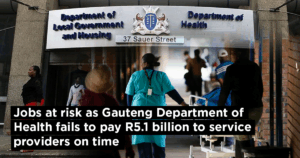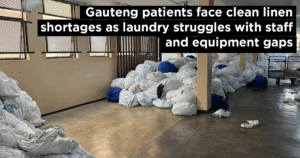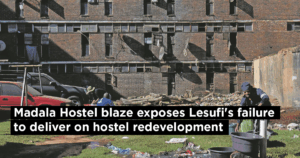Note to editors: Please find English and Sesotho soundbites by Refiloe Nt’sekhe MPL.
The Gauteng Department of Social Development’s (GDSD) decision to centralise food bank operations, despite early warnings from the Democratic Alliance (DA), has left thousands of needy people without food and worsened food insecurity in the province. Standing in solidarity with the poor, the DA will table a motion in the Gauteng Provincial Legislature (GPL), demanding that the GDSD decentralise food parcel distribution to better serve the people of Gauteng.
Previously, food parcels were distributed through a network of 288 Non-Profit Organisations (NPOs) and five regional food banks. However, in June 2025, the department announced and eventually implemented its plan to distribute food via a single central food bank, despite the DA’s repeated warnings that this would not work and would be costly to those in need.
Our concerns have now been validated by the GDSD’s fourth quarterly report of the 2024/25 financial year, which confirms that underperformance in food parcel distribution has reached a critical level. The department set a target to distribute 53,025 food parcels, but only delivered 34,114, worryingly falling short of its commitment.
It is also concerning that in the first quarter of the 2024/5 financial year, the department aimed to deliver 434,595 pro-poor basket interventions yet none of these were delivered. The excuse for non-delivery of these items was that there was a “delay in supply chain management”.
See extract from the report here.
These unacceptable failures make it clear that the department is blighted by poor planning coupled with incompetent financial controls. This makes it difficult for us to believe the department’s assurances that it remains committed to making up the supply of all promised items.
What the Premier Panyaza Lesufi-led government fails to understand is that people meant to benefit from the supply of food cannot benefit from these supplies retrospectively. Households that missed meals cannot be fed in hindsight.
The DA reiterates its call for the reversal of the decision to centralise food bank operations, which has negatively affected both NPOs and their beneficiaries. Based on its poor record and lingering capacity challenges, this department should have known that it would not be able to manage food distribution without the help of NPOs, but persisted, nonetheless.
A DA-led Gauteng Provincial Government would decentralise the food parcel distribution and ensure that food parcels are easily accessible to the vulnerable. Proper supply chain management, combined with sound planning and implementation, would help prevent delays in food delivery to those in need.








